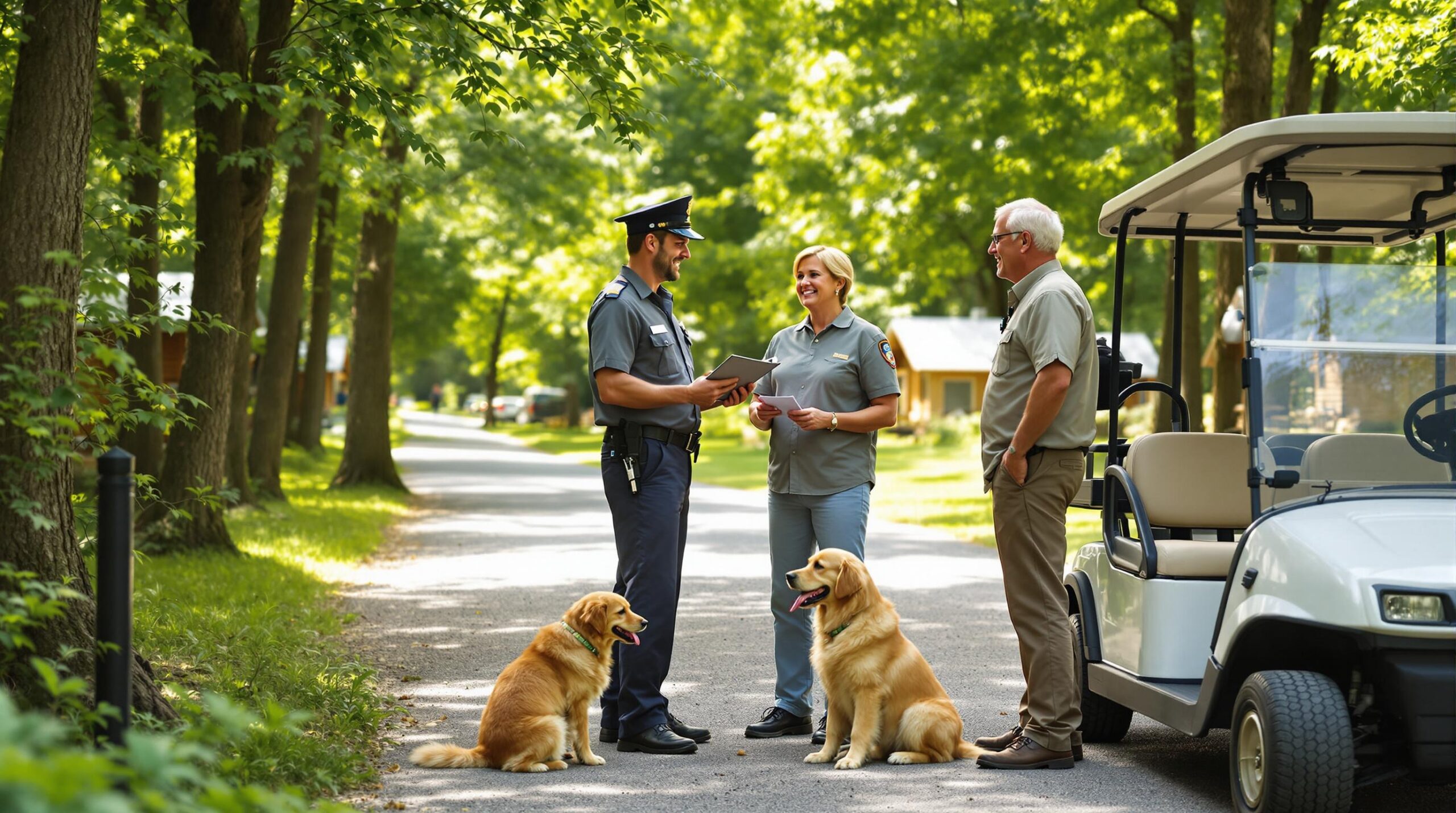Bowdish Lake Campground, with approximately 400 campsites on Route 44 in West Glocester (mailing address: Chepachet), Rhode Island, has updated its 2024 rules to require proof of liability insurance for guest-owned golf carts and to add new pet-insurance restrictions. The park now requires liability coverage for guest-owned golf carts and prohibits several dog breeds under mandates from its carrier.
The lakefront property lists a “seasonal-only status” for this year, with no short-term or tent reservations accepted, according to its reservations page. Management says the season-long occupancy pattern makes it essential to lock down recurring risks.
Under the park’s updated campground rules, golf carts count as extra vehicles, and owners must show proof of liability insurance at check-in. Only licensed drivers may operate the carts, and staff can revoke privileges if speed, passenger loads, or other behavior endangers guests.
Those limitations extend beyond golf carts. Motorcycles and motorized bikes are barred entirely, a move the rules attribute to the same insurance policy. The park also notes separate fees for carts, second vehicles, and pets, costs intended to help offset liability expenses.
Best practices for campgrounds include having guests upload cart or e-bike insurance documents during online reservation or pre-arrival check-in so staff can verify coverage before wheels ever touch the property. Some parks issue a simple color-coded decal at check-in, allowing staff to spot compliance from a distance without sorting through paperwork. Organizing insurance PDFs in a cloud folder labeled by site number and stay dates can help with recordkeeping if an incident is reported months later.
Handing guests a one-page safety sheet that covers speed limits, headlights after dusk, passenger limits, and quiet-hour rules—and collecting a quick signature to document acknowledgment—can reinforce safety policies. Training frontline employees to politely but firmly deny cart use if coverage is expired, altered, or missing also helps maintain consistency and limit liability.
A periodic review of the park’s general-liability policy ensures that third-party motorized-vehicle claims are not excluded or sub-limited, as many operators only discover such gaps after a loss. These steps can turn a policy statement into a repeatable process that protects guests, staff, and the park itself.
Pets face similar scrutiny. The carrier forbids Pit Bulls, Akitas, and other specified breeds, and campers must call the office for the full list. All approved pets must stay leashed, vaccinated, and out of buildings and swim areas, with owners cleaning up and curbing excessive barking, according to the reservation details.
Park operators seeking to meet breed bans without alienating customers can post a web-friendly fast-facts box on restricted dogs, add behavior-based exceptions where a carrier allows, and partner with local kennels so guests have options. Providing amenities such as fenced dog runs and ample waste-bag stations demonstrates proactive risk management, while staff trained in calm refusal language—“Thank you for understanding our insurance restrictions”—can help protect the park’s reputation.
Monitoring emerging pet-liability products that price risk by individual animal rather than breed may also help parks remain flexible as insurance offerings evolve. Taking these steps can help operators satisfy insurance mandates while maintaining positive guest relations.
Insurers in the outdoor-hospitality sector are sharpening underwriting guidelines, pushing parks to collect documentation up front, track it electronically, and show evidence of ongoing risk controls. Bowdish Lake’s layered approach reflects a broader trend: liability requirements are moving from fine print to frontline operations.
Prospective campers should review the full rule set before arrival and direct questions to the office at 401-568-8890 (alternate: 401-578-3002). For fellow park owners, the policy shift is a reminder to audit their own insurance clauses, verify how they are enforced day to day, and close any workflow gaps before peak season begins.


